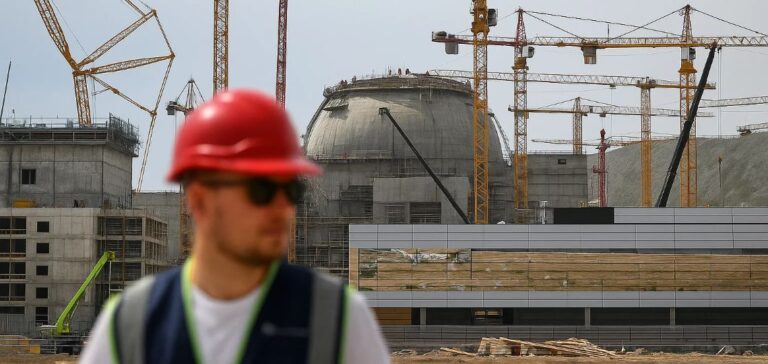The Akkuyu nuclear project, led by the Russian giant Rosatom, raises significant economic, technical, and security concerns in Turkey. Valued at USD 25 billion, this critical project for Turkey’s energy policy is currently 99% controlled by Rosatom through its subsidiary Akkuyu Nükleer A.Ş. The Turkish Parliament recently expressed serious concerns about the economic implications of the agreement signed with Russia, which guarantees a high price of 12.35 US cents per kilowatt-hour for 15 years, significantly higher than domestic and international rates. This situation, coupled with Russian shareholder dominance, fuels questions about potential conflicts of interest undermining Turkish national interests.
Debates on security and technological dependence
In addition to financial costs, Turkish MPs highlighted project delays, notably related to difficulties with Siemens, the German company originally responsible for supplying essential equipment. Facing these delays, Rosatom has turned to Chinese alternatives, raising further questions about Turkey’s technological independence. Limited local participation, estimated between only 25 to 30% of contracts, reinforces concerns over long-term technical dependence on foreign expertise, primarily Russian and Chinese. Since 2011, 319 Turkish engineers have been trained in Russia, placing Turkey in a long-term technological dependence on Russian methods and standards.
Environmental and security concerns were also raised by parliamentarians. Mehmet Tahtasız emphasized the lack of local infrastructure suited to the long-term management of radioactive waste generated by Akkuyu. Furthermore, Mahmut Tanal demanded guarantees concerning seismic assessments and emergency measures, noting that Akkuyu is situated in a highly earthquake-prone area. These factors heighten risks associated with foreign management of such sensitive infrastructure.
Partner diversification strategy
Facing Russian influence, Ankara has embarked on active energy diplomacy for its future nuclear plants, notably in Sinop on the Black Sea coast, and Thrace. According to Turkish Energy Minister Alparslan Bayraktar, advanced negotiations are currently ongoing with Canada through Candu Energy, as well as with China and South Korea. Turkey aims to reach 20 gigawatts (GW) of nuclear capacity by 2050, necessitating rapid partner diversification to prevent scenarios similar to Akkuyu.
Discussions with China are particularly advanced for the project in Thrace, notably with the State Power Investment Cooperation (SPIC). Bayraktar also met with representatives from CNOS and CATL to explore various nuclear investment models and technologies. This diversification appears crucial in a context dominated by Russian influence over the Akkuyu project.
Unexploited legal levers
Despite these new initiatives, Turkey has yet to invoke Article 5 of the bilateral agreement signed with Russia in 2010, which would allow it to reclaim up to 49% of Akkuyu’s shares for national security reasons. Until now, Ankara considers Akkuyu a national commercial entity subject to Turkish law but has not exercised its participation rights. This status quo effectively maintains Russian control over a facility destined to provide 10% of the country’s electricity.
For stakeholders in the energy sector, the current Akkuyu situation and future strategic decisions by the Turkish government will be crucial. Upcoming developments, especially Akkuyu’s planned operational start at the end of 2025, and progress in negotiations with new partners, will determine the real extent of foreign influence over Turkey’s nuclear sector.






















